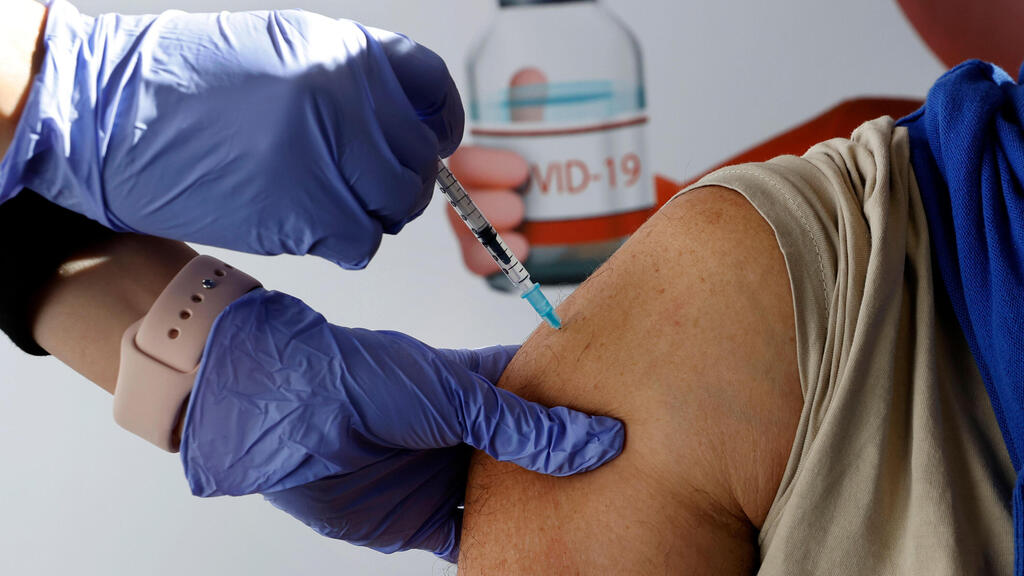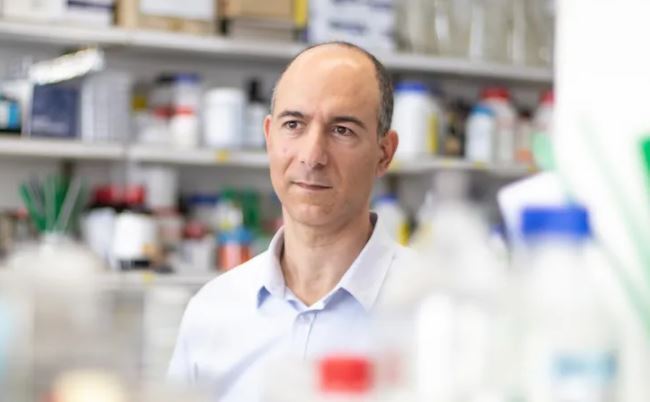In the past year or so, mRNA vaccines have become headline news as their development has been key to the successful rollout in many countries of an immunization program to combat the COVID-19 pandemic.
What might be less well-known, however, is that an Israeli immunology researcher affiliated with the Lautenberg Center in the Medicine Faculty at the Hebrew University of Jerusalem (HUJI), completed a series of research experiments more than a decade ago that showed the potential for mRNA therapeutics in autoimmune and cancer diseases.
“I read that CNN reported that U.S. scientists suggested extrapolating mRNA vaccines technology of COVID-19 for use in auto-immune diseases and cancers,” said Prof. David Naor, the immunologist in question.
“I realized that I had already done this more than 10 years ago, performing research that showed the potential for mRNA vaccines to combat autoimmune diseases and cancers. Practically, we used cDNA vaccines, which were the first generation of mRNA vaccines, and they were efficient in the therapy of animal models of autoimmune diseases and cancer.
“We published our findings in scientific literature,” he explained. “We wanted to encourage mRNA vaccinations [we called it then “gene vaccination”] — and the technology used to make them — to be used against infections and other diseases.”
“I used a technique of mRNA-like vaccines to test them against animal models of autoimmune diseases, such as Type I diabetes and Multiple Sclerosis as well as breast cancer. We experimented on mice — because it is easy to recapitulate the pathologies in these rodents by simple manipulations.
Naor said that the technology showed that mRNA vaccines were able to ameliorate or even nearly cure the diseases under investigation.
While the therapeutic use of mRNA vaccines is now a focus of world attention, Naor pointed out that his laboratory’s research paper was one of the first that showed that mRNA could be used to treat a range of diseases.
The professor maintained that he and his colleagues did the work “accidentally.” “At the time, we were not aware that our research in animals could definitely be transferred to use in humans, but the COVID-19 mRNA vaccine is the first successful mass use of the technology and we showed that it may be able to be used for other diseases too.”
He emphasized that the original experiments were crucial because they showed the many-faceted uses to which mRNA vaccinations could be put - and the range of autoimmune and cancer diseases they could treat.
It was the potential benefit that seemed to excite him most, arguing that mRNA vaccines could help treat or cure diseases that kill in an order of magnitude greater than COVID-19.
“We can’t yet do it for every disease with humans, but it works well in treating autoimmune diseases and cancer in animals and hopefully, in human beings in the future.”
Meanwhile, the principal investigator at the university's Medicine Faculty Prof. Rotem Karni is energized with the potential of mRNA vaccines.
Karni explained that there had been a revolution in the last 10 years in the use of RNA therapeutics. He said that the techniques involved with “gene silencing” — the interruption or suppression of the expression of a gene — and the research that has gone into the siRNA/ASO molecules that induce mRNA degradation have continued to develop rapidly.
He added that research into RNA splicing — the ability to modulate gene activity involved in genetic diseases — had yielded outstanding results. In one instance, he said that a "miracle drug" had been developed to treat spinal muscular atrophy. Paralyzed babies who had been given the drug began to crawl and a disease that may have once killed them very young allows them to live for years.
The technology is enabling researchers to understand that there may now be fewer diseases conceived of as “untreatable.”
“The field is blooming and it is now feasible to treat patients with RNA molecules,” Karni revealed.
“The main challenge at the moment — and Moderna found this to an extent — is how to deliver RNA into body tissues. Using a vaccination is enough to penetrate a few cells in the muscles, which in the case of COVID-19 was sufficient.”
Karni assessed that the current development of nanoparticles meant that a solution to this issue would likely be forthcoming in the next few years.
He anticipated that many vaccines in the future will be based on RNA. “It is much faster and it was actually quite straightforward to design the sequence for COVID-19. It is relatively easy to make RNA and it is very tempting to use it for many diseases — and especially if there was a new virus or pandemic.





